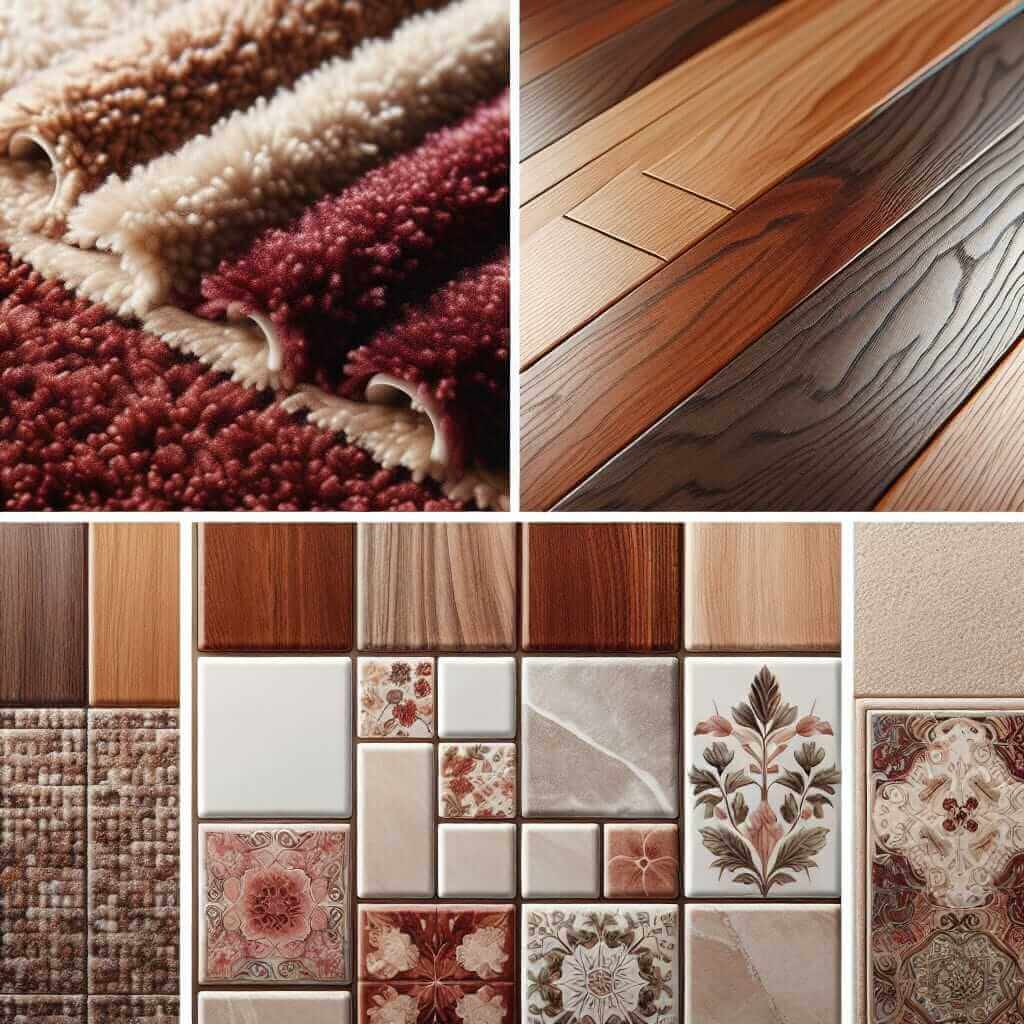As an IELTS instructor with over 20 years of experience, I’ve noticed a recurring theme: students often struggle with vocabulary related to everyday topics, which can hinder their performance in the Speaking test. One such topic is “flooring materials”. You might be thinking, “Flooring? In IELTS?”. While it might not be the most common topic, having a range of vocabulary related to home décor and materials can be surprisingly useful, especially in Part 1 of the Speaking test where you might be asked about your home, preferences, or even future aspirations.
Why is Knowing Flooring Vocabulary Important for IELTS?
The IELTS Speaking test assesses your fluency, vocabulary, grammatical range, and pronunciation. While you don’t need to be an interior design expert, demonstrating a broad vocabulary related to common topics like home improvement can showcase your language proficiency.
Common Flooring Materials and Related Vocabulary:
Let’s explore some common flooring materials and related vocabulary that can boost your IELTS Speaking score:
1. Carpet:
- Carpet: A soft floor covering made from fibers.
- Plush/Deep Pile Carpet: Luxurious and soft with a long pile (fiber length).
- Berber Carpet: Durable and stain-resistant, often with a looped pile.
- Carpet Tiles: Small squares of carpet that can be installed individually for easy replacement.
2. Hardwood Flooring:
- Hardwood: Flooring made from solid wood, known for durability and elegance.
- Oak: A popular hardwood known for its strength and classic look.
- Maple: A lighter-colored hardwood known for its smooth finish.
- Laminate: A cost-effective alternative to hardwood, made from layers of compressed wood.
3. Tile:
- Ceramic Tile: Durable and water-resistant, often used in bathrooms and kitchens.
- Porcelain Tile: A denser type of ceramic tile with low water absorption.
- Natural Stone Tile: Options like slate, marble, and granite, offering unique beauty and durability.
- Grout: The material used to fill the spaces between tiles.

Incorporating Flooring Vocabulary into IELTS Speaking:
Here are examples of how flooring vocabulary can be used naturally in the IELTS Speaking test:
Part 1:
- Examiner: “Tell me about the flooring in your home.”
- You: “My living room has beautiful oak hardwood flooring, which adds warmth and character to the space. However, my kitchen has practical ceramic tile for easy cleaning.”
Part 2:
- Describe a time you made a change to your home that you were happy with.
- You: “…We decided to replace the old, stained carpet in our bedroom with plush carpeting. It made a huge difference in the comfort and overall ambiance of the room.”
Tips for Success:
- Don’t Memorize Lists: Focus on understanding the meaning and usage of words.
- Practice Speaking: Use new vocabulary in sentences and practice common IELTS Speaking scenarios.
- Listen Actively: Pay attention to how flooring materials are described in English-language media.
By expanding your vocabulary and practicing your speaking skills, you’ll be well-prepared to tackle any questions about flooring materials or other everyday topics that may arise in the IELTS Speaking test. Good luck!